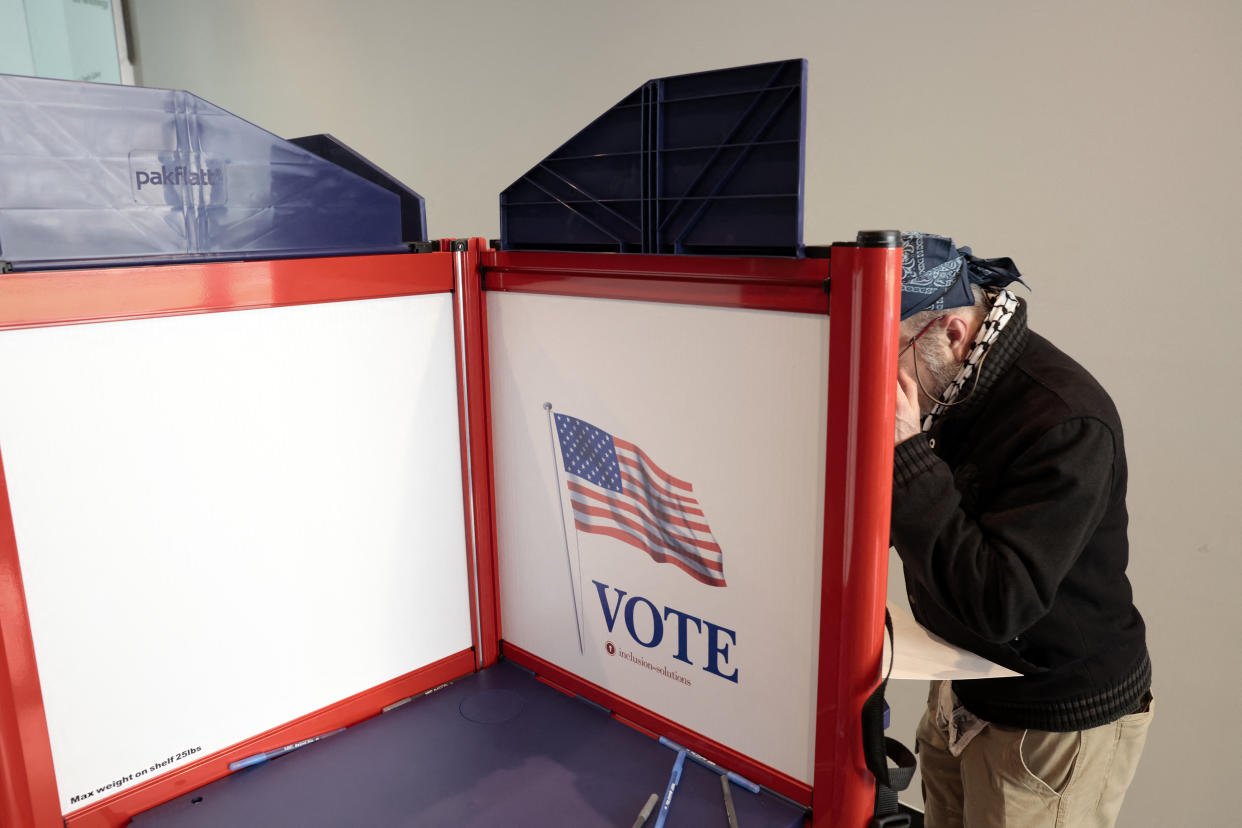Why Michigan is having both a Republican primary and a caucus this week

It’s the year of confusing elections for Republican primary voters.
For the second time in a few weeks, Republican voters in an early presidential primary contest state are faced with having two elections in the space of a few days.
On Tuesday, Michigan will hold a primary election open to all registered voters. Then, on Saturday, March 2, the Michigan Republican Party will hold a caucus convention.
But unlike Nevada — which had a similar situation for Republicans earlier this month — both contests will count toward the GOP nomination for president.
The Republican primary will award 16 delegates, while the caucus convention will allocate another 39.
But that’s not even the worst of it. There is confusion about where the March 2 caucus convention will be held, because the Michigan Republican Party is embroiled in a battle between rival factions that are both claiming leadership of the organization.
Why are there two contests?
The Democratic-controlled state Legislature moved the Michigan primary to Feb. 27, and that violated the Republican Party’s rules for its nominating process.
Both parties make rules about which states can be among the first to hold primary contests.
Democrats will also hold a primary Tuesday, Feb. 27. There is a protest effort among some Democrats, especially in Arab communities that oppose U.S. support for Israel, but President Biden is still expected to easily win that contest.
Still, the size of the protest vote will be one factor to watch.
When the Democrats moved the Michigan primary to Feb. 27, the Michigan GOP created its hybrid system in which their caucus convention — open only to party activists selected through a party process at the county level — will award the majority of the delegates.
The eventual Republican nominee will need to win 1,215 delegates to clinch the party’s stamp of approval. Donald Trump currently has 110, while Nikki Haley has 20.
The Michigan GOP squabble
The Michigan Republican Party’s finances have been in disorder for months, and debts have mounted.
Most Michigan Republicans blame the current party chair, Kristina Karamo, a former community college professor with little political experience who rose to prominence in the state party by claiming to have seen voting fraud in the 2020 election.
No fraud was found or proven, but Karamo became a personality in the party, and last year was elected party chairman.
By late last year, however, there was an effort inside the party to remove Karamo.
Less than two weeks ago, the Republican National Committee — in consultation with Michigan Republican activists — recognized a different person as the Michigan chairman: former Rep. Pete Hoekstra.
But Karamo has so far refused to step aside, citing the effort to remove her as driven by “the deep state.” Karamo has insisted she will run the caucus convention on March 2 that will award 39 of the state’s 55 delegates.
So now there are two competing caucus conventions in different locations. Hoekstra chose the Amway Grand Plaza Hotel in Grand Rapids. Karamo is organizing a caucus convention at Huntington Place in Detroit.
The dueling conventions could produce competing slates of delegates to the Republican Party convention in Milwaukee this July. The national party would then have to choose which slate to recognize.
How the delegates are allocated
The 16 delegates up for grabs in the Feb. 27 primary will be awarded proportionally among any candidates who win at least 12.5% of the vote.
At the March 2 caucus convention, delegates from each of the state’s 13 congressional districts will meet to award three delegates each.


